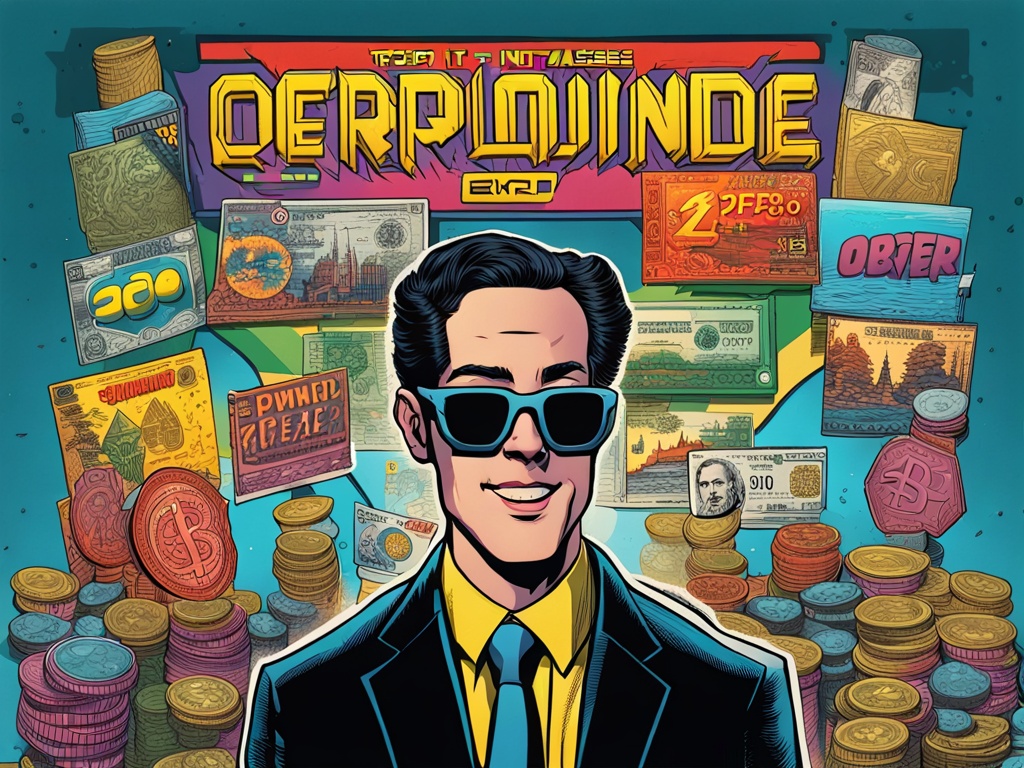Exploring Economic Insights: Fred Krueger’s Take on Inflation and Bitcoin 🌍💰
Fred Krueger, a well-known business figure and advocate for Bitcoin, recently shared his thoughts on how inflation and living expenses have evolved. His observations stem from extensive experience as an entrepreneur and a deep understanding of economic principles. This year, he took to social media to highlight the growing challenges that everyday consumers face, particularly regarding escalating prices for essential goods and services.
Krueger’s Background: A Journey Through Entrepreneurship and Economics 🚀📚
With a history of founding and selling numerous businesses, including Fauve Software and iwin.com, Krueger has firmly established himself in the entrepreneurial world. He is also recognized as the co-author of “The Big Bitcoin Book,” a key text for many in the cryptocurrency space. His academic achievements include a Bachelor’s degree in Mathematics from Cornell University, along with a Ph.D. in Operations Research and Applied Mathematics from Stanford University. Additionally, he has experience in bond arbitrage, having worked for esteemed firms like Salomon Brothers.
Analyzing Economic Trends: A Closer Look at Inflation 📈💸
As an enthusiastic supporter of Bitcoin, Krueger often examines various economic phenomena, arguing for cryptocurrency as a viable solution to prolonged financial challenges. He performed an analysis comparing price changes of essential items from 1971 to this year, revealing significant shifts in purchasing power over the decades.
- Essential items have seen substantial price hikes:
- Gas prices jumped from 36 cents to $3.00 per gallon.
- A slice of pizza in New York rose from 25 cents to $5.00.
- The price of education at prestigious institutions like Stanford surged from $2,400 annually to $66,000.
Wages vs. Living Costs: A Disparity in Growth 📉🏦
Krueger’s examination of wage increases during the same time frame revealed a troubling discrepancy. While essential goods’ prices soared, wages have not increased comparably. He highlighted the following points:
- Federal minimum wage rose from $1.60 to $7.25, a fourfold increase.
- Average salaries for professionals, including engineers and lawyers, grew seven to nine times.
- Investment banking emerged as a notable exception, with starting salaries increasing 15-fold since 1971.
Questioning the Quality of Modern Goods 🛠️❓
Krueger challenges prevailing arguments that justify high price increases by citing improved product quality. Using his own experiences as a basis, he posits that vehicles like Ford F150 trucks and Porsche 911s still fundamentally resemble their predecessors, questioning the legitimacy of inflation-adjusted pricing explanations.
The Impact on Different Income Groups 📊⚖️
According to Krueger, the economic realities largely disadvantage the lower 50% of earners, who struggle to keep up with rising costs. He emphasizes that while the top 1% sees substantial benefits in the current economic climate, the average individual faces mounting difficulties. Extending his analysis to Europe, he observed similar trends with rising prices and stagnant salaries.
Bitcoin as a Hedge Against Inflation 💎💵
Krueger proposes Bitcoin as a potential remedy for the challenges posed by persistent inflation. Historically, assets like gold and the S&P 500 have served as valuable hedges against economic shifts, with significant appreciation over the past five decades. In particular, he points out the following historical gains:
- Gold increased from $35 an ounce to $2,600, a remarkable 74-fold rise.
- The S&P 500 grew from $100 to $6,000, marking a 60-fold increase.
Despite these figures, Krueger is optimistic that Bitcoin will surpass both gold and the S&P 500 in future decades, considering it an effective hedge against inflation for those who adopt it.
Bitcoin vs. Gold: Understanding Their Roles in Wealth Preservation ⚖️💰
While Krueger underscores Bitcoin’s potential as an inflation hedge, it’s important to recognize gold’s long-standing position as a safe haven throughout history. Gold has maintained value across various civilizations, cementing its status during times of economic instability. Bitcoin, despite its innovative nature, entered the economic landscape much later, with its long-term role as a protective financial instrument still under examination.
Hot Take on Future Economic Trends 🔮🏦
As inflation continues to shape economic landscapes, Krueger’s perspective invites readers to reconsider how they view traditional financial assets versus emerging cryptocurrencies. Understanding these dynamics is crucial for adapting to a rapidly changing world. The tension between rising costs and stagnant wages will likely spark further discussions about the role of digital currencies in future economic strategies.
For a deeper dive into essential insights regarding Bitcoin, inflation, or economic analysis, you may explore the following links:





 By
By
 By
By
 By
By
 By
By
 By
By